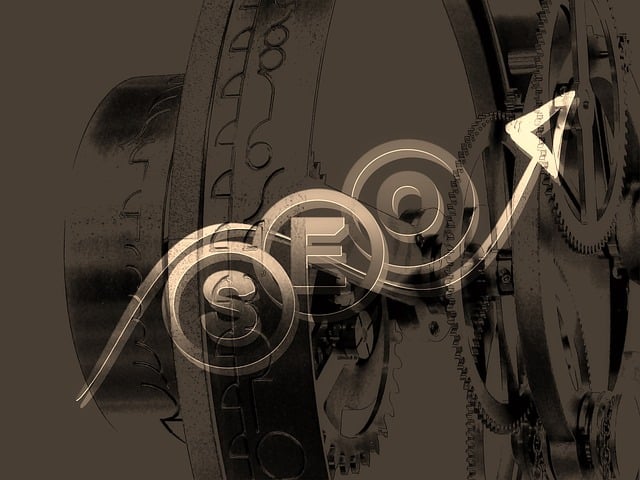Product listings are key to e-commerce success, and an SEO Agency for E-commerce Websites plays a pivotal role in enhancing their visibility and performance. These agencies employ strategic techniques like keyword research using tools like Google Keyword Planner or SEMrush, crafting compelling meta titles and descriptions, optimizing images with alt tags, and structuring content with relevant headings (H1-Hn). They focus on high-quality, unique product descriptions and ensure fast loading times for images. Backlink building and fostering user engagement are also crucial strategies to signal search engines of a site's value and relevance. By implementing these tactics, SEO agencies drive organic traffic, improve click-through rates, boost sales, and foster customer loyalty in today's competitive digital landscape.
In the dynamic landscape of e-commerce, product listings are the lifeblood of online retail. Understanding their impact on consumer behavior is crucial for any SEO agency catering to e-commerce websites. This article delves into the art and science of optimizing product listings through SEO, exploring strategies from keyword research to content optimization. Discover how to enhance discoverability, attract organic traffic, and boost sales by implementing proven tactics tailored for e-commerce success.
Understanding Product Listings and Their Impact on E-commerce

Product listings are the cornerstone of any successful e-commerce platform, acting as digital shop windows that attract and engage potential customers. These listings aren’t just static pages; they’re dynamic assets that can significantly influence consumer behavior and drive sales through effective search engine optimization (SEO). An SEO agency for e-commerce websites understands this critical role and leverages strategic techniques to enhance product visibility and click-through rates.
Optimizing product listings involves more than just keyword placement. It entails crafting compelling meta titles and descriptions, ensuring high-quality product images that engage visually, and providing detailed, accurate information that addresses customer queries. By implementing these strategies, e-commerce businesses can ensure their products not only rank higher in search engine results but also offer users a seamless and satisfying browsing experience, fostering customer loyalty and boosting revenue.
The Role of SEO in Enhancing Product Discoverability

In today’s digital landscape, where millions of products compete for online shoppers’ attention, Search Engine Optimization (SEO) plays a pivotal role in enhancing product discoverability. An SEO Agency for E-commerce Websites understands this and leverages strategic techniques to ensure that products are not just listed but also easily found by potential customers. By optimizing product listings with relevant keywords, compelling meta descriptions, and high-quality images, these agencies improve the visibility of e-commerce sites in search engine results pages (SERPs).
This approach goes beyond simply increasing traffic; it transforms online stores into vibrant marketplaces where products resonate with their target audiences. Effective SEO strategies help customers find precisely what they’re looking for, leading to higher conversion rates and satisfied shoppers. An SEO Agency for E-commerce Websites thus acts as a catalyst, fostering growth by making product listings more accessible, relevant, and attractive to the digital consumer.
Keyword Research for Product Listings: Strategies and Tools

Keyword research is a fundamental aspect of optimizing product listings for search engines, and it’s an area where many e-commerce businesses can gain a competitive edge. For an SEO agency focused on e-commerce websites, understanding your target audience’s language and the keywords they use when searching for products is crucial. This involves identifying not just broad terms but also long-tail keywords that are more specific to individual products or categories.
Effective strategies include using tools like Google Keyword Planner, SEMrush, Ahrefs, or Moz to analyze search volume, competition, and related keywords. These platforms provide insights into popular search terms, helping businesses tailor their content accordingly. Additionally, staying updated with industry trends and leveraging customer feedback can ensure that your product listings remain relevant and optimized for maximum visibility on both search engines and e-commerce platforms.
Optimizing Title Tags, Meta Descriptions, and Headings

When it comes to optimizing product listings for search engines, title tags, meta descriptions, and headings are key elements that an SEO agency for e-commerce websites should focus on. Each of these components plays a vital role in how your products appear in search results, significantly impacting visibility and click-through rates.
Title tags, being the most crucial, should be crafted with care to include relevant keywords while maintaining readability. They provide a concise overview of the product and are often the first thing users notice. Meta descriptions, though not directly ranked on by search engines, still attract clicks and can influence user engagement. Crafting compelling meta descriptions that highlight unique selling points can drive more traffic to your listings. Headings, structured using H1, H2, and so on, organize content for both users and search engines. Incorporating product-specific keywords in headings enhances context, signaling to search algorithms the relevance of the listing.
Leveraging High-Quality Content and Product Images

High-quality content is a cornerstone of effective SEO for product listings. When it comes to e-commerce websites, an SEO agency understands that well-crafted product descriptions go beyond mere word count. Each description should be unique, engaging, and informative, using keywords naturally and highlighting key features and benefits. Product images are equally vital; high-resolution visuals with optimal file names and alt tags not only enhance the user experience but also signal to search engines that your site offers valuable content.
An SEO-focused agency will ensure these images are optimized for speed, as well, as slow-loading pages can negatively impact both rankings and conversion rates. By combining compelling copy and visually appealing product presentations, an e-commerce website can attract more organic traffic, boost click-through rates from search results, and ultimately drive sales—all essential goals for any online retailer in today’s competitive digital landscape.
Building Backlinks and User Engagement for Better Rankings

Building backlinks and fostering user engagement are integral strategies for any SEO agency specializing in e-commerce websites. Backlinks, or inbound links from other websites, signal to search engines that your product listings are valuable resources. Earning these links through high-quality content, guest blogging, or partnerships can significantly boost your website’s authority and visibility. Additionally, user engagement metrics like click-through rates (CTR), time spent on page, and bounce rates communicate to search algorithms that your products are relevant and appealing. Encouraging user interaction through optimized product descriptions, engaging visuals, and intuitive navigation ensures that visitors not only land on your pages but also explore and interact with your offerings.
These dual approaches—building high-quality backlinks and enhancing user engagement—work synergistically to improve rankings. Search engines, like Google, prioritize websites that provide a positive user experience, recognizing the value of relevant, engaging content. By combining these strategies, an SEO agency for e-commerce can help businesses achieve better rankings, drive more organic traffic, and ultimately increase sales.
